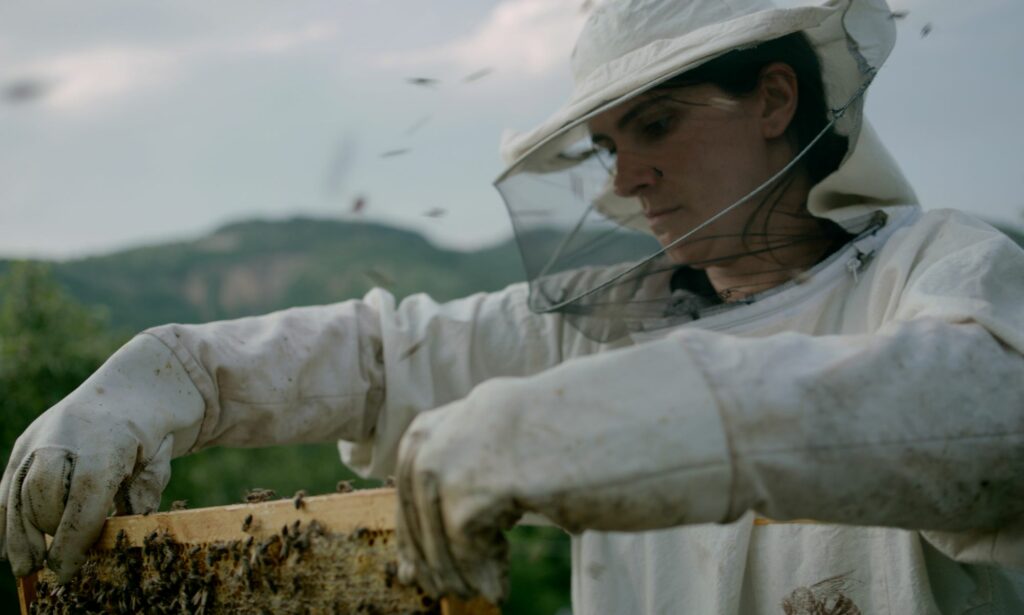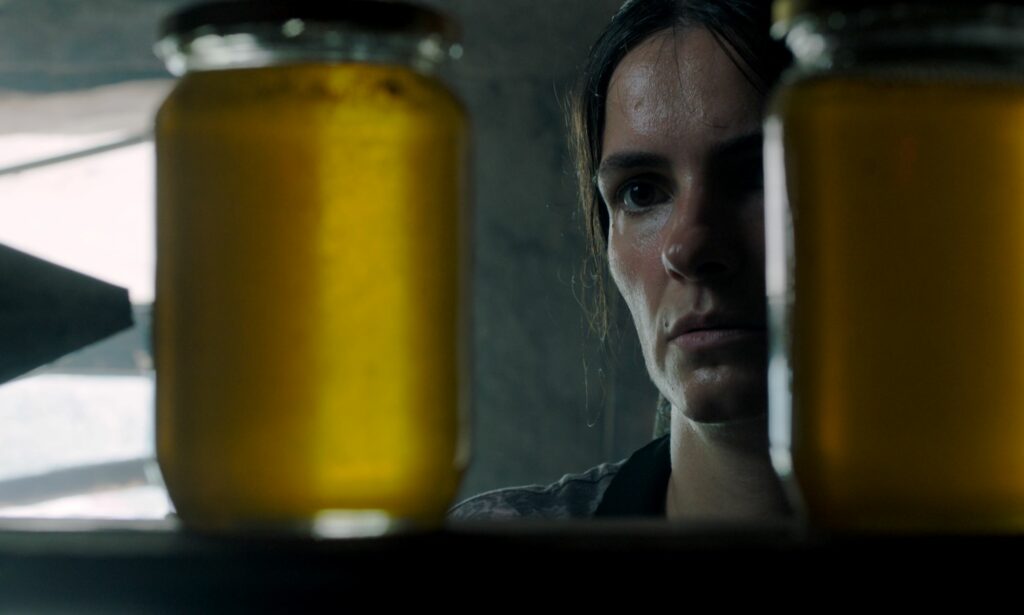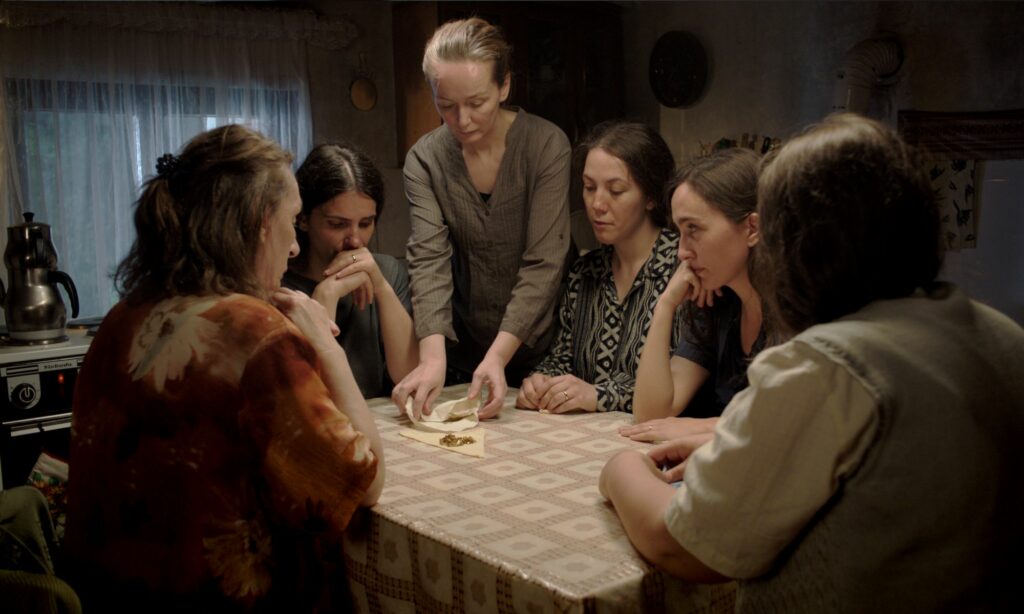Hive is the kind of movie that regular attendees of film festivals will know well: a broadly inspiring narrative with based-on-a-true-story credentials, totally competent on a technical level and bolstered by strong performances. And yet, I have to admit, the film did nothing for me – tasteful to a fault, it lacks the filmmaking imagination to transcend the familiarity of its triumph-over-adversity scenario.

To its credit, Hive’s opening scene is a startling and powerful one: at what first appears to be some sort of crime scene populated by people in hazmat suits, a woman ducks under the police tape and into a truck filled with white body bags. She clambers over the corpses, hurriedly peeking into each of them before she’s kicked off the site; as she leaves, a sign alerts us to the fact that the official personnel present are representatives of the UN.
Fahrije (Yllka Gashi), we soon find out, is looking for her husband. Seven years after the Kosovo War (the film is set in the mid-noughties) he is still missing, with Fahrije not yet ready to accept that he’s likely dead. She’s far from the only one this position; the small Kosovan village she lives in with her elderly father-in-law (Çun Lajçi) and two kids is full of women trapped in a kind of limbo — unable to move on while their husbands remain officially missing, and hardly able to support themselves economically. Fahrije, working with the beehives her husband once managed and selling the honey at a local market, is barely scraping by.

In defiance of the strict gender roles prescribed by her conservative community, Fahrije decides she’s going to do something about it: get her driving licence, buy a used car, and start her own business selling homemade ajvar – a roasted red pepper condiment – to a supermarket in the capital. The locals aren’t happy, to put it mildly, with a woman asserting her independence in such a manner. It’s not long before she is branded a “whore” and receives a brick through her car window. Even her family, fearing scandal, are against her. But the defiant Fahrije perseveres, eventually imploring other widows to come and work with her.
It’s good to be reminded that the conversation on sexism travels at different paces in different places, and there’s no denying that this story is, in theory at least, an inspiring one. Which makes it all the more a shame that dramatically, after a strong opening, Hive quickly fizzles out. Gashi’s performance is solid, hitting all the notes of stony stoicism the film requests of her, but she’s rarely permitted to embody her character with the passion this material demands. Just a few seconds of obligatory footage of the actual Fahrije, seen at the end of the film, gives us enough of a glimpse of a real, living person to inadvertently underscore a certain lifelessness to the film. (Kumrije Hoxha, playing Fahrije’s supportive friend, adds some much-needed vibrancy to the picture.)

Hive is Blerta Basholli’s debut feature, and she certainly demonstrates strengths as a writer and director, particularly in capturing the often strained, occasionally poignant dynamics between Fahrije, her family and the community at large. The film suffers, however, from a certain modesty that unfortunately translates as a straightforwardness that lacks imagination. It’s not hard to figure out where the story is headed, and in the absence of anything much surprising – visually, sonically, narratively, politically – it’s hard to shake the feeling that once you’ve got the hand of a scene, all that’s left is for it to play out.
Hive is released in cinemas across the UK and Ireland on 18th March.
